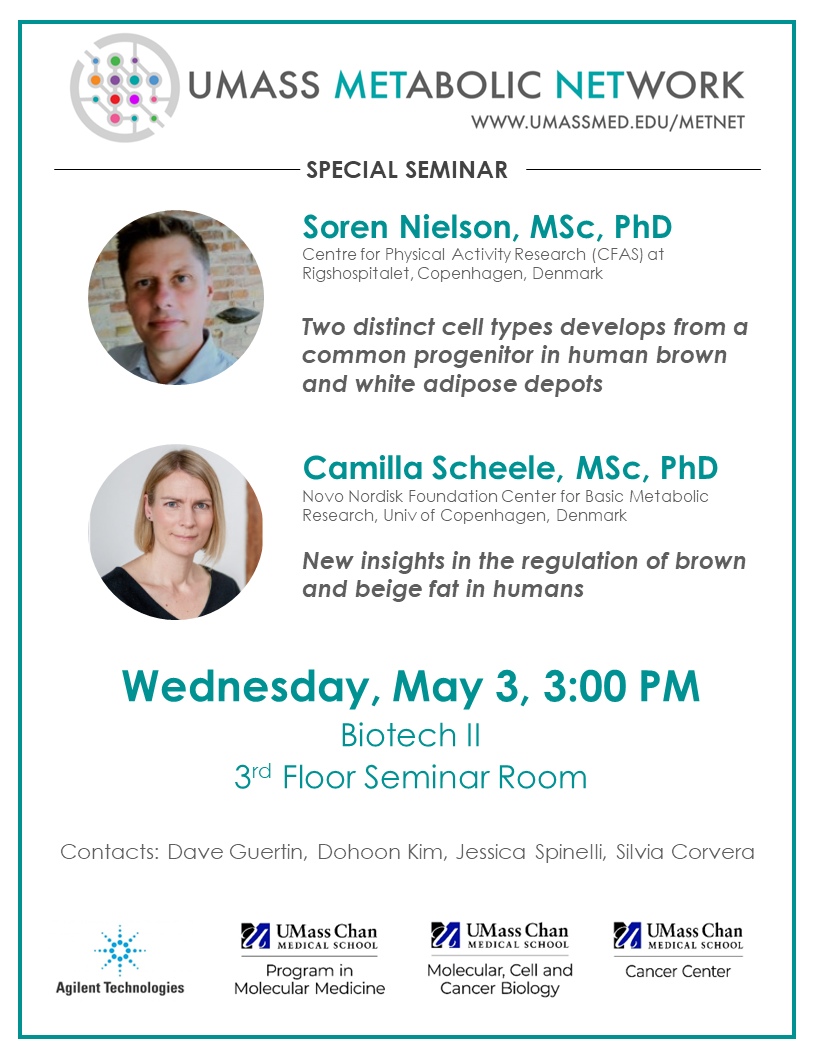Talking Fat with Søren Nielsen, PhD & Camilla Sheele, PhD
Date Posted: jueves, abril 27, 2023
On May 3 MetNet will welcome two speakers from Copenhagen, Denmark who will sink their teeth into the subject of fat and how it affects our metabolism.
Søren Nielsen, MSc, PhD
is a senior researcher and group leader at Centre for Physical Activity Research (CFAS) at Rigshospitalet in Copenhagen. His primary research interest is how RNAs transcribed from the non-coding genome (lncRNAs) can control metabolic processes in human brown and white adipocytes.
Søren was awarded the Novo Nordisk Foundation Excellence Emerging Investigator grant in 2020, to build a research group focusing on mapping the translocation of non-coding RNAs upon a metabolic stimulus using a high content imaging screening approach. In addition to that, his group is investigating how lncRNAs can interact and control the activity of cytosolic organelles.
Camilla Scheele, MSc, PhD
is an Associate Professor at the Novo Nordisk Foundation Center for Basic Metabolic Research at the University of Copenhagen. She received her PhD at Karolinska Institutet in Stockholm, Sweden.
Her research is focused on the role of human brown fat in metabolism and its potential to counteract obesity and type 2 diabetes. Her research team characterized human supraclavicular brown fat and demonstrated, for the first time, that brown fat precursor cells can be isolated from adult humans and differentiated in vitro while maintaining features of brown fat. They further concluded that human brown fat is a heterogeneous tissue and are now establishing single cell methods to further understand the differentiation, function and subtypes of human brown fat cells.
Another major research interest of her group is to identify adipokines specifically secreted from brown fat, with the hypothesis that there are yet unknown brown adipokines, such as batokines, with an important role in regulating human metabolism and brown fat differentiation. In 2020, Camilla was awarded an ERC consolidator grant to study peptide-mediated crosstalk between BAT and brain.

